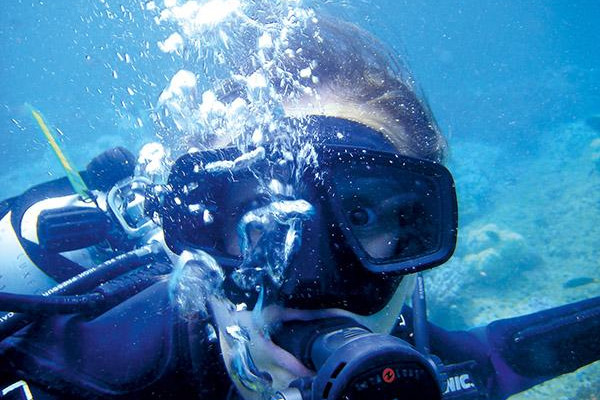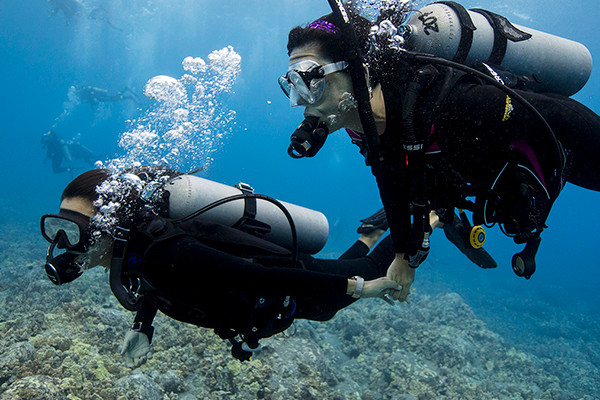According with the experts, diving stress underwater can develop from lack of confidence in your own ability, your buddy’s ability, your equipment or your surface support. It can be divided into two categories: physical and psychological. Physical stresses is related with equipment, physical fit and confort while psychological stresses are related with lack of skills, fears and low training.

Stress is often precipitated by a single event and if not handled correctly it can become a situation of panicking. It is really important to prevent the diving stress and recognize the signs of extreme stress in the early stage to prevent a more difficult situation.
Here we share 6 tips (There are more) that may help you to reduce the risk of developing diving stress underwater and avoid unpleasant situations.
1. Be fit to dive. Both physically and mentally
It is very important to maintain a good physical and emotional condition. That will help us face any unpredicted situation in a rational way, making it easier to think of alternatives for resolution.
It’s important to monitor our health condition before the dive. Normally the symptoms of any sickness on the surface are accentuated at the bottom. It is better not to get into the water if our health condition is not optimal.
2. Always make sure you dive within your own comfort zone.
Every diver knows its own limits and shoudn’t try to go beyond them. If you don’t feel confortable to dive, just don’t do it. Choose appropriate dives at your level. Be aware of your limits and express your concerns to your partners. It is not necessary to go down to -30 meters with the rest of the group if your diving level does not allow that deep.
3. Prepare for every dive.
Always plan your dive in advance and adapt it to your skills level. It’s important to plan in advance the place of the dive, the moment of the current, the maximum depth, the route, forecast of consumptions. A good planning will lower down the possibility of encountering unpleasant surprises. In case you are planning to dive in a new place it is highly recommended to contact a local dive shop that can provide valuable information and even take you to the dive site.
6 Important things to consider before the dive
4. Test out your equipment regularly
Even that most of unpleasent situations underwater are not related with equipment failures, it is important to perform proper maintenance of your diving gear. Checking bottles, regulators, vest, etc … is the best way to reduce the possibility of suffering some technical failure in our underwater equipment that may put you under risk. Avoid extreme dives with unfamiliar kit is always a good idea.
5. If you get a problem, remember: stop, breathe, think, act.
A clear mind is always the best condition in order to deal properly with any situation that may cause you stress. Going into panic will turn things into a worst situation. If you get a problem, stop, breath, think and act. Informing your buddy is one of the first steps to take at that point. Keep calm and deal with small problems as they arise to prevent lots of small problems becoming one big one.
6. Dive with a skilled buddy
Choose good and skilled buddies, able to respond in any situation where you may need help. The partners should always be aware of one another and never separate. Diving with trusted people is a great peace of mind from the psychological point of view.

If you want to know more about how to deal with diving stress there are some good articles waiting for you. Dive Magazine published a very useful interview with three experts about this topic. You can read it here.
And remember, prevention, confidence and a clear mind are your allies in any diving stress situation underwater.
What are the most common causes of stress in diving?
According to Mr. Richard Bull, an experienced technical diver, the stress of diving can be divided into two categories:
Physical stress and psychological stress. Richard Bull claims that one can lead to the other and they can feed each other.
Some reasons why a diver may experience stress with, for example:
- A suit too tight
- Hands too cold
- The not so comfortable team
All of the above are physical stresses
There are also other reasons why divers experience stress such as psychological stresses, such as:
- Peer pressure
- The fear of the unknown
- The pressure of equipping too quickly
No diver should be placed in situations that cause extreme stress
For experienced divers as well as new divers, these situations can be different.
